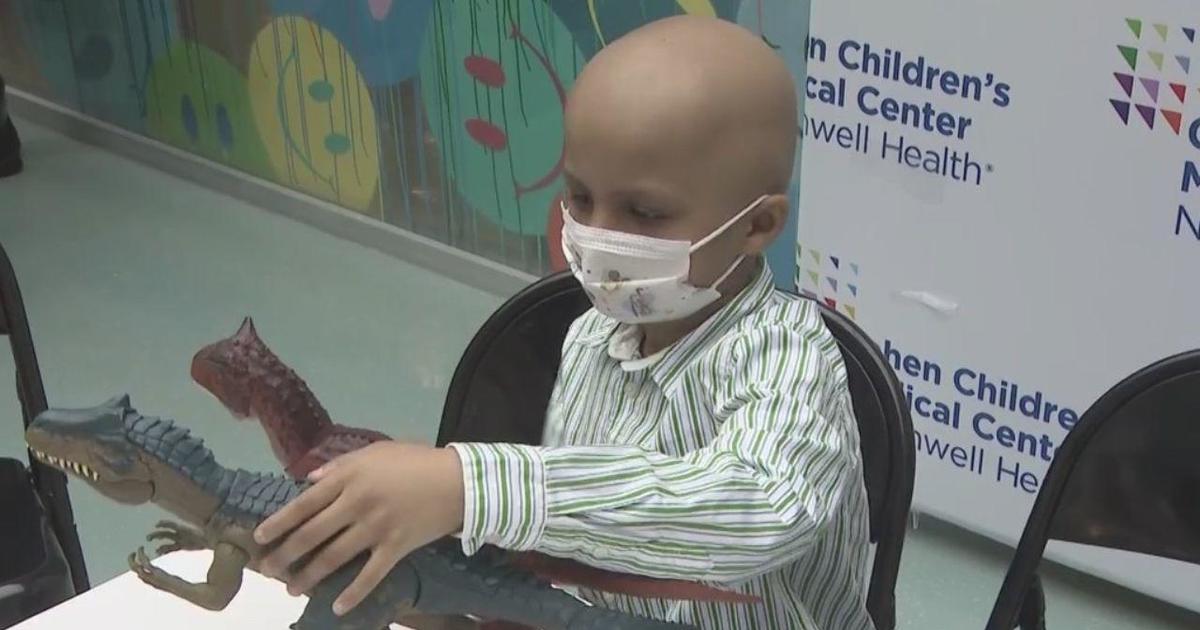Dolphin, Once Near Death, Released After Being Nursed Back To Health
HAMPTON BAYS, N.Y. (CBSNewYork) -- Roxanne the dolphin was found on a Fire Island sandbar in June unresponsive. When marine researchers arrived, they said they thought she might have been dead.
But on Wednesday, after being nursed back to health, the 700-pound dolphin was released back into the ocean, CBS 2's Emily Smith reported.
"At first glance, when we saw her, she wasn't moving," said Robert DiGiovanni, director of the Riverhead Foundation for Marine Research and Preservation. "We didn't see her breathing, so we thought she might have been dead on the beach."
Roxanne, who had ulcers and internal bleeding, was taken to the Riverhead Foundation for treatment and rehabilitation. She has since gained 100 pounds, ingesting 75 pounds of squid a day.
On Wednesday, crews loaded Roxanne from a transfer crate into a vessel named Sea Wolf before driving 20 miles offshore to release her. A crowd filled with children attended the sendoff.
"The dolphin gets to see its family again, and it can reunite with other dolphins," one girl told Smith.
Roxanne is one of the lucky ones. More than 300 dead dolphins have washed ashore from North Carolina to New York since July 1 -- more than nine times the historical average for the region during that span.
On Tuesday, marine biologists announced that they believe the dolphins could be suffering from a bacterial or viral infection with symptoms that resemble measles. The disease is passed from dolphin to dolphin. It can't be transmitted to humans.
"There's a lot of skin contact among them," marine biologist Kim Durham told CBS 2. "They're constantly rubbing each other, so yeah, the possibility that they're spreading it among themselves is very large."
And there is no way to stop the virus from spreading among dolphins.
"Within their behavior, these animals are very social," said Mendy Garron, a stranding coordinator with the NOAA, "and so if one animal contracts the virus, they can transmit it to another animal."
Scientists said the last time they saw an epidemic like this was 25 years ago, when 750 dolphins died in the span of about one year.
Charles Potter, a marine mammal biologist at the Smithsonian, studied the 1980s epidemic and said he believes pollution could be weakening the dolphins' immune system.
You May Also Be Interested In These Stories



